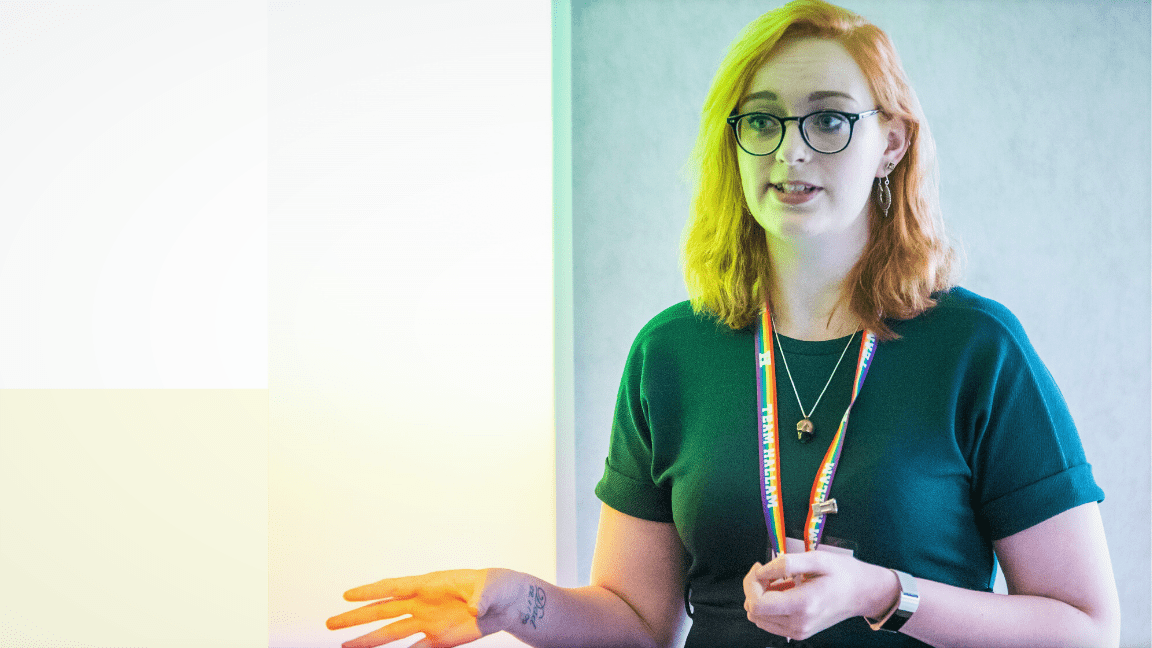Gaining insight into medical device development
Translate MedTech’s Secondment Scheme is designed to develop the innovation skills and translational capability of medical technology researchers in the Leeds City Region. This article is part of a series that showcases the impact that secondments have had on medtech research, as recounted from the secondee’s perspective.
Due to the success of the scheme, it is being run again in 2020. To find out how to apply for Translate secondment funding for your medtech research, click here.
Name: Dr Ruth Evans
Host organisation during the secondment: S-Med
Dr Ruth Evans is a Postdoctoral researcher at Sheffield Hallam University, where she’s working with Reza Saatchi, Professor of Electronics (Medical Engineering), to develop a non-contact thermal imaging device to help diagnose sleep disorders in children.
Ruth has been awarded £1800 by Translate MedTech for a 3-month part-time secondment with S-Med, the UK’s leading supplier of specialised sleep diagnostic systems and services.
We had a chat with Ruth about the technology being supported, and what her secondment will help her achieve.
What clinical need does this new technology address?
Investigating sleep-disordered breathing such as sleep apnoea in young children is particularly difficult because they naturally want to pull off the sensors placed on them which measure things like blood oxygen levels, respiration and heart rates.
We’re developing a non-contact sensor using a thermal camera which can measure respiration by looking at temperature changes around the nose and mouth.
When you breathe in the colder room temperature air, it minutely affects the skin temperature around this area, and when you breathe out the air around this area is warmer. It’s a really clever solution.
Is your background in medical devices?
No, my PhD was in Physics and Astronomy and I was working with infrared data using a thermal camera to look at galaxies!
I wanted to apply my skills to something that was more immediately useful and my skill set matched with those Professor Saatchi needed to analyse and interpret his data.
It sounds bizarre, but the technical side, the signal processing and data analysis, is the same – it’s just the subject matter that’s different.
How did the secondment opportunity arise?
Coming from a Physics and Astronomy background to medical devices, I’ve been on a steep learning curve. I attended several Translate training courses earlier this year and learned about the secondment scheme via their newsletter.
I realised that this would be a valuable opportunity to gain insight into industrial processes and the regulatory side of medical device development.
Professor Saatchi has a long-standing relationship with S-med, which helps develop and distribute the devices that are currently used to measure heart rate and respiration rate in hospitals.
They’ve already supported several of my grant applications and immediately saw the benefit of a fully-funded secondment.
The Translate MedTech team helped with feedback to strengthen my application and I heard back really quickly that I’d been successful.
What do you hope to gain from the secondment?
It’s an incredible opportunity to gain a much deeper understanding and experience of what industrial partners need from us to be able to bring a new device to market.
The secondment will enable me to visit S-Med’s partner company, SOMNOmedics, whose production plant is in Germany.
I’ll learn about the software that they’re currently using and work with the team there to find a way to incorporate the imaging software that I’m developing into the devices that they produce. I’ll also learn more about medical device regulations that govern new product development.
I hadn’t considered doing a secondment before I saw the Translate opportunity and I haven’t even seen any other organisations offering grants for secondments.
Without Translate, I don’t think I’d have had the opportunity or found funding to do something like this. I can’t wait to start.
Finally, we had the opportunity to speak with Selwyn Sher, Managing Director of S-med, to discuss his views on hosting an academic secondment.
“We’re always looking for unique, innovative technologies to retain our competitive advantage and collaborating with researchers like Ruth and her colleagues at the university, has clear benefits for all parties.
We’ve worked with plenty of universities and hospitals where they’ve used our equipment and technology for their research projects, but this is the first time we’ve worked this way round – using university expertise to help us design and develop a new product. Ruth’s expertise is perfect for assisting with this and the secondment will be instrumental in enabling this work.”
_____________________________________________________________________________________________________________
If you could benefit from support while progressing a medical technology towards commercialisation, or if you want to develop innovation skills then consider applying for a Translate MedTech secondment.
Our latest call is open to applications, and further detail can be found on our website here. You can also contact Mohua Siddique with any questions you might have about the scheme.

